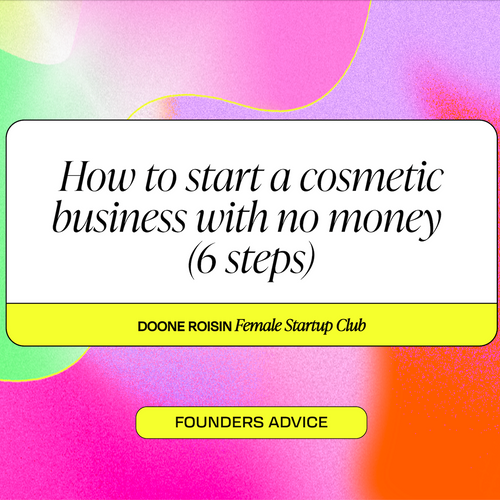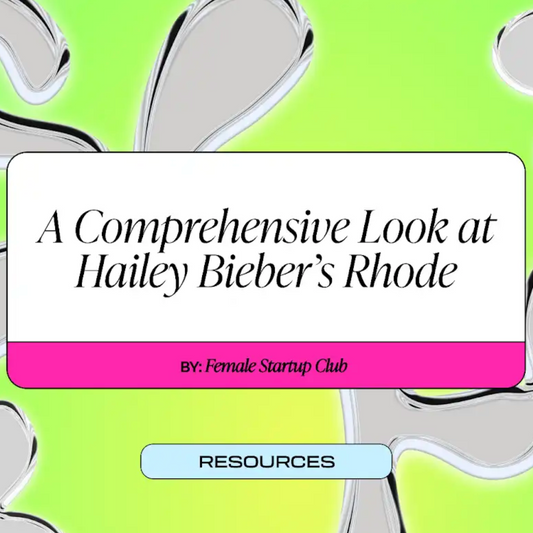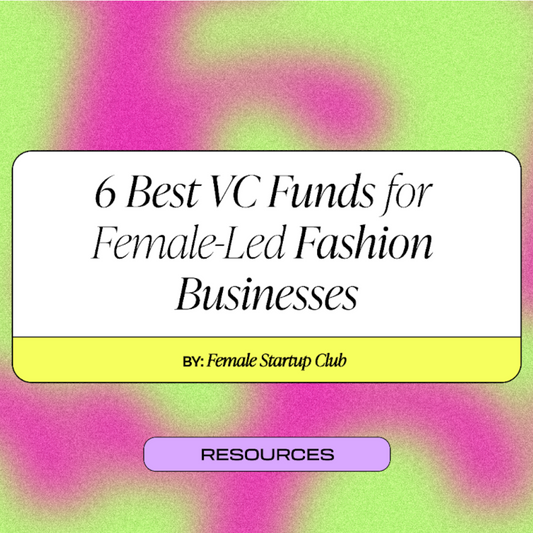Today I’m joined by Debbie Mullin, the founder of Copper Cow Coffee.
Equal parts Vietnam and equal parts California, Copper Cow Coffee is the brainchild of Vietnamese American Debbie Mullin, who blended her love for Vietnamese coffee and culture with her background in sustainability.
It brings an authentic, yet modernized, pour-over barista quality coffee experience to homes across the nation. Dedicated to the environment, Copper Cow Coffee is quality-obsessed, eco-friendly, and proud to be part of the 2% (and growing) of women-owned companies with venture funding.
We’re covering:
-
How to approach your acquisition costs
-
Advice for Raising VC dollars and whether you should or not
-
Why your network as a founder is highly important and something very exciting we’re launching to empower our female startup club listeners

The Lightbulb Moment
Growing up in California as a Vietnamese-American, Debbie always had a deep connection to her roots. She found herself drawn to entrepreneurship because of the fast-paced, creative environment it offered. Her mission? To make Vietnamese food and coffee more accessible to people everywhere. With this in mind, she launched Copper Cow Coffee, bringing high-quality Vietnamese coffee beans to the U.S. for the first time.
Debbie’s business has been on a steady upward trajectory. With about 15 employees, Copper Cow Coffee is on track to triple its revenue again this year, proving that her passion for authentic products has real market potential.
Getting Started: Just Press Play
One of Debbie’s top pieces of advice? Don’t overthink it—just get started. Whether you’re launching a product or raising funds, it’s important to get it out there. "The key is to start talking to people and getting feedback," she says. "That real-time input is invaluable." It’s only by listening to customers that she’s been able to iterate and improve Copper Cow Coffee’s offerings.
For any founder, the first product doesn’t have to be perfect. It just needs to get out there. "Packaging is huge," Debbie explains. "You need something tangible to sell, so you can start gathering customer feedback and see if your product has legs."
Nailing Down Acquisition Costs
When it comes to acquisition costs, Debbie’s advice is practical and straightforward. "We’ve always operated from a model where we pay for customer acquisition on the first purchase," she shares. For venture capitalists, this often means looking for a 3:1 lifetime value (LTV) to customer acquisition cost (CAC) ratio. To hit these numbers, founders must be clear about what LTV means for their business—whether that’s over six months, a year, or longer.
One of the secrets to Debbie’s success? Advertising costs should never exceed one-third of the profit made from that customer. It’s a simple yet crucial formula that keeps Copper Cow Coffee’s growth sustainable.
Early Momentum and Scaling with E-commerce
Copper Cow Coffee’s early success came from trade shows. "We were able to get into 1,000 stores from just one three-day show," Debbie recalls. But, she quickly points out that trade shows aren’t as powerful as they once were. Today, e-commerce is the driving force behind the company’s rapid growth.
“Once we started spending money on ads, the results were almost immediate,” Debbie says. The beauty of e-commerce is that it allows companies to learn more about their customers. "With online sales, we know who’s buying our product and why. This kind of data is gold."
Every quarter, Copper Cow Coffee surveys its customers and receives thousands of responses. This real-time feedback helps the brand fine-tune its marketing strategies and product offerings. From Google Analytics to customer surveys, digital tools have empowered Copper Cow Coffee to grow rapidly.
Balancing E-commerce and Retail
Despite Copper Cow Coffee’s e-commerce dominance, Debbie believes in meeting customers where they are—whether that’s online or in grocery stores. While e-commerce has grown faster, retail is still a key component of the brand’s long-term strategy. The split between e-commerce and wholesale was 90/10 in the early days. Now, it’s closer to 70/30, with retail sales continuing to multiply each year.
“I never wanted Copper Cow Coffee to be an all-ecommerce business,” Debbie shares. She’s a big believer in the power of grocery stores and retail partnerships to drive long-term growth.
Digital Ads: The Secret Weapon
For Copper Cow Coffee, digital ads remain the "bread and butter" of customer acquisition. Facebook ads, in particular, have played a huge role in scaling the business. "You can spend as much as you want on digital ads, but it has to make economic sense for your business," she advises. Ads allow the brand to communicate its story and educate potential customers in just a few seconds.
Debbie highlights the ease of educating customers through quick videos and GIFs—something that’s difficult to replicate with traditional retail packaging. With digital, Copper Cow Coffee can communicate its value in seconds, getting it in front of the right people and driving both e-commerce and in-store sales.
Wrapping It Up
Debbie Mullin’s journey with Copper Cow Coffee is a masterclass in how to build a business that not only grows but thrives. From her early trade show success to mastering acquisition costs and scaling through e-commerce, Debbie proves that when you blend passion with practical strategies, the sky’s the limit. Her advice? Don’t be afraid to take risks, listen to your customers, and always be prepared to iterate.



